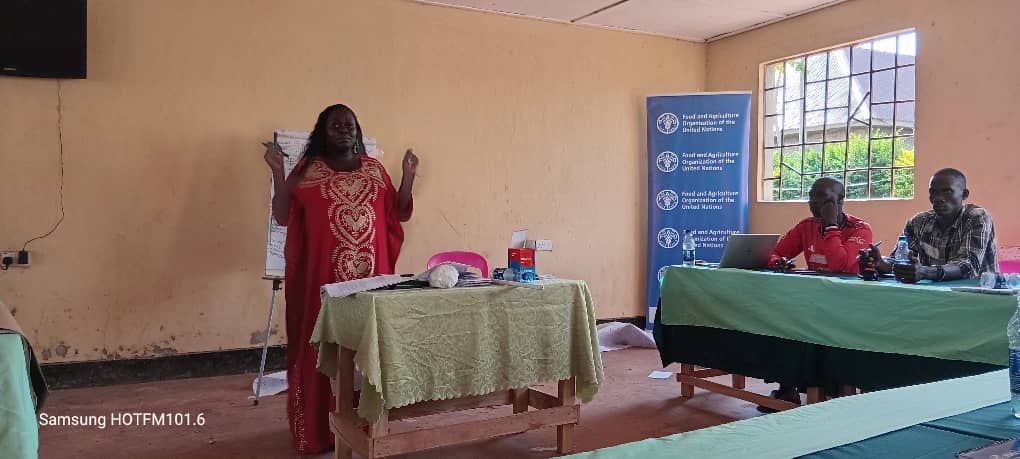
 Hot FM
Hot FM

 Hot FM
Hot FM
5 June 2025, 9:14 am

By Sarah Ejang
On June 4, 2025, the Food and Agricultural Organisation (FAO), in collaboration with the Amot Farmers Association, conducted a pivotal training session aimed at fostering gender responsiveness within the Amolatar community.
This one-day event took place at the Star One Motel and was designed to equip selected farmers as gender champions capable of addressing critical gender issues.
Mr. Ekalu John Bosco, the Executive Director of the Amot Farmers Association, expressed his satisfaction with the training initiative.
He noted that previously, the association had trained 38 individuals on gender topics; however, they now focus on a smaller group of champions who will take lead roles in advocating for gender equality. “We see this training as an opportunity to deepen our community’s understanding of gender-related issues that many still find perplexing,” said Mr. Ekalu.
Encouraging active participation, he urged those trained to engage their communities rigorously on gender issues. “It is essential that you become agents of change in your neighborhoods,” he added.
Among the participants was Abangi Betty, a farmer from Omoro village in Odyak parish.
She praised the training organisers, emphasising the community’s significant knowledge gap regarding gender concepts. “I have come to realise that everyone deserves equal opportunities, treatment, and rights,” she stated passionately.
Another participant, Amongi Betty from the Konyakonyi Farmers Field School, expressed optimism about initiating community changes now that they are equipped with knowledge about gender balance. “We are ready to implement what we’ve learned and encourage others to recognise the importance of gender equality,” she affirmed.
Peter Ongako, a farmer from Bar-Okuto village, highlighted the significance of facilitating men’s understanding of gender issues, remarking, “As trained gender champions, we will focus on helping men grasp gender concepts, which is vital for family development.”
At the conclusion of the training, Ms. Harriet, the agricultural officer for Muntu subcounty, delivered a constructive suggestion on behalf of the District Chief Administrative Officer (CAO).
She proposed that future training sessions include couples to enhance mutual understanding and engagement in discussions surrounding gender concepts. “Whether it’s husband and wife or partners, involving couples may lead to better receptiveness and collaborative efforts in addressing gender issues,” she concluded.
This training marks a significant step towards fostering gender equity within the farming community in Amolatar, promoting a more inclusive approach to agriculture and family welfare.